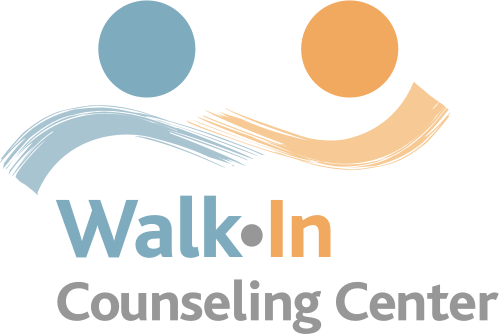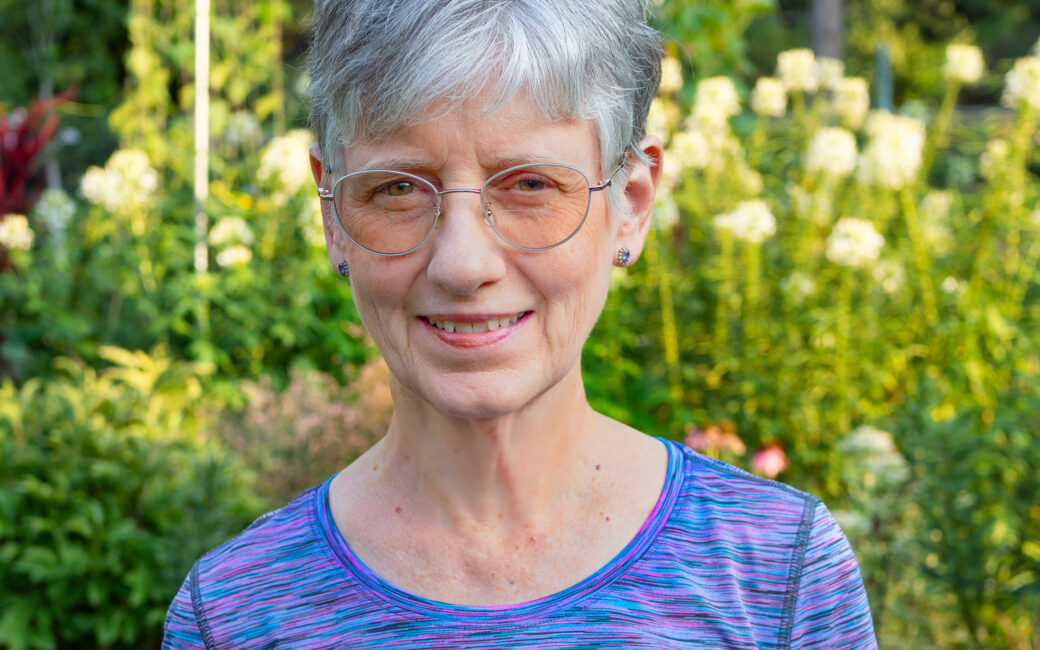When Kathy W. retired from practicing clinical psychology in 2018, she discovered that she dearly missed the work. So when a friend invited her to consider joining a counseling team at Walk-In Counseling Center, she soon volunteered — and she is glad she did.
“It keeps me connected to the work that I love, and I find that I’m learning all the time from my team members,” Kathy says. As a team consultant, she leads a team of professional clinicians who volunteer their services and advanced graduate students participate with us as their field placement. Every weekday, clinic teams provide free, no-appointment, anonymous counseling services to all comers.
Kathy draws on more than 20 years of supervisory experience to help each counselor best serve the needs of the people who come to Walk-In. Clinic teams include members from a variety of backgrounds, including psychology, social work, and marriage and family therapy.
During her time at Walk-In, Kathy has seen clinics quickly switch from in-person to virtual by phone or computer. She recalls many instances of callers finding desperately-needed help during the tumultuous times of pandemic and civil unrest.
“I keep thinking of the many, many callers our team helped with their anxiety and fears and isolation during the first year or so of the pandemic,” Kathy recalls. “I heard story after story of people grateful for feeling heard and supported and not quite so alone after calling in.”
“Several of those callers were front-line healthcare workers who were exhausted from overtime shifts, on top of everything else they had to cope with, and they expressed deep appreciation for having Walk-In’s services so easily accessible when they were feeling distraught,” Kathy says.
The variety of issues that come up at Walk-In is remarkable, Kathy says. She recalls the time before the pandemic when a group of four roommates came to the Walk-In building for help with conflicts arising from sharing a space.
“It was a very warm, caring, loving group of people. They left feeling like they had worked out some solutions. We were able to create a safe space for people to do that.”
During the pandemic, Kathy remembers helping two foreign college students with stress arising from being unable to go home when family members were sick or dying of COVID-19. Counselors were able to advocate for accommodations with the colleges.
Kathy also remembers a caller who sought help coping with trauma around the time of the murder of George Floyd by police in 2020. Previously, the caller had been present during a police raid on a home, and she found herself experiencing panic attacks. The counselor was able to help stabilize the caller and connect her with resources for longer-term help with trauma.
Trauma is often a factor even when someone comes to Walk-In for an unrelated reason, Kathy says. “We don’t tend to see simple cases,” she says. For example, another caller was trying to cope with the death of her partner in a car crash, while still dealing with layers of previous trauma.
Fortunately, there is better treatment available for trauma than there was decades ago, Kathy says. Recent research on the brain and trauma has yielded new techniques such as EMDR (Eye Movement Desensitization and Reprocessing.) While Walk-In isn’t able to provide long-term treatment for trauma, “we help stabilize the person during a crisis and connect them with organizations that can help work through trauma. That stabilization is the gap that we fill,” she says.
When asked how she first got interested in psychology, Kathy says it was through books she read as a child growing up on a farm in Iowa.
“It was through reading so much as a child (and throughout my life) that I developed a curiosity and compassion about people’s inner workings and about their life stories. When we understand their stories and how they make sense of what is happening in their lives, how can we help but have empathy?” Kathy says.
“Looking back, I think that experience of getting the ‘inside story’ from characters in novels led me to want that in my life’s work, to be able to offer understanding and thereby ease some suffering.”

